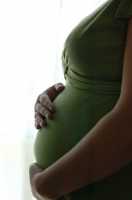Fertility, Lifestyle & Health / 03.12.2024
The Impact of Lifestyle on Fertility: Insights From Reproductive Medicine Clinics
Please consult your health care provider for specific fertility and lifestyle advice.
Do not take supplements without consulting your personal health care provider.
 The complex interplay between lifestyle and fertility has become an area of significant interest within reproductive medicine. Prevailing research underscores the influence of dietary habits, physical activity, stress management, and sleep patterns on reproductive health, while harmful behaviours like smoking and alcohol consumption further complicate the fertility landscape. As we uncover these intricacies, it invites a deeper exploration into how lifestyle modifications can potentially enhance fertility outcomes. With this understanding, we stand on the precipice of a transformative approach to fertility management, one that encompasses a broader, more holistic view of reproductive health.
The complex interplay between lifestyle and fertility has become an area of significant interest within reproductive medicine. Prevailing research underscores the influence of dietary habits, physical activity, stress management, and sleep patterns on reproductive health, while harmful behaviours like smoking and alcohol consumption further complicate the fertility landscape. As we uncover these intricacies, it invites a deeper exploration into how lifestyle modifications can potentially enhance fertility outcomes. With this understanding, we stand on the precipice of a transformative approach to fertility management, one that encompasses a broader, more holistic view of reproductive health.
 The complex interplay between lifestyle and fertility has become an area of significant interest within reproductive medicine. Prevailing research underscores the influence of dietary habits, physical activity, stress management, and sleep patterns on reproductive health, while harmful behaviours like smoking and alcohol consumption further complicate the fertility landscape. As we uncover these intricacies, it invites a deeper exploration into how lifestyle modifications can potentially enhance fertility outcomes. With this understanding, we stand on the precipice of a transformative approach to fertility management, one that encompasses a broader, more holistic view of reproductive health.
The complex interplay between lifestyle and fertility has become an area of significant interest within reproductive medicine. Prevailing research underscores the influence of dietary habits, physical activity, stress management, and sleep patterns on reproductive health, while harmful behaviours like smoking and alcohol consumption further complicate the fertility landscape. As we uncover these intricacies, it invites a deeper exploration into how lifestyle modifications can potentially enhance fertility outcomes. With this understanding, we stand on the precipice of a transformative approach to fertility management, one that encompasses a broader, more holistic view of reproductive health.





























